MVFF37 Day 7: Charlie’s Country, Nightcrawler, Black and White
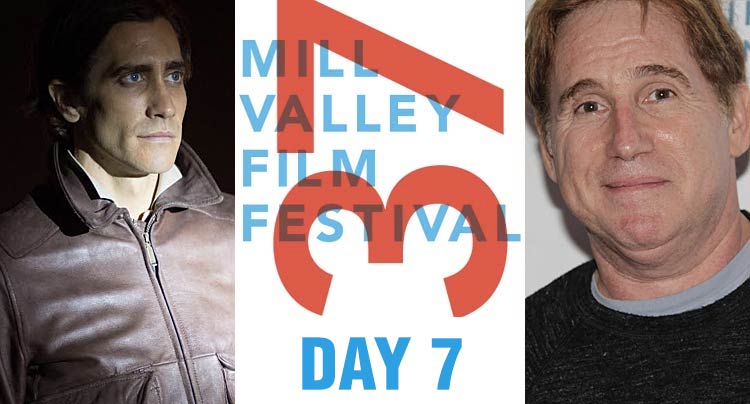
We’re at the midpoint of the Mill Valley Film Festival and this is where I jump in. Having made the trek from Los Angeles to join in our coverage of the festival, I’ve been immediately greeted with colorful fall trees and some compelling film viewing. I was lucky enough to catch Whiplash, an intense and (literally) rhythmic film, that kicked off my first Mill Valley Film Festival experience with some serious energy. But like the tree covered hills surrounding this quaint town, the festival continues to show it’s versatility with unpredictably high highs, and deep and somber lows. Stay tuned for the rest of the week as Bernard and I team up to give you more coverage from Mill Valley!
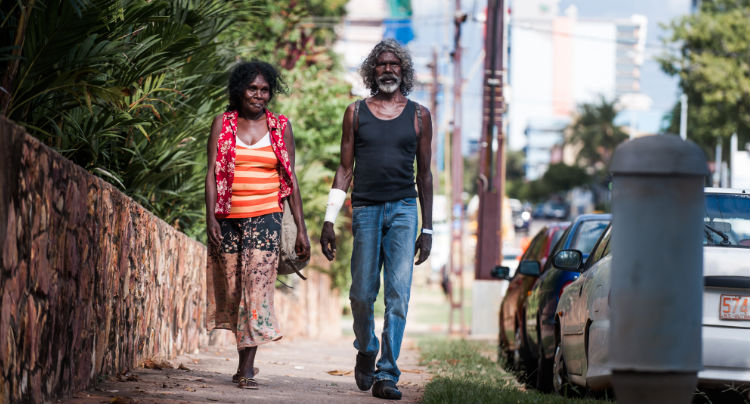
Out in the Bush
[Ananda]
There’s a luxurious feeling associated with watching a matinee on a Wednesday. And after Whiplash’s intensity I was ready to relax with Charlie’s Country. Starring David Gulpilil — a man known as much for his eccentric outback lifestyle as his straightforward acting approach in such films as Walkabout, The Last Wave, and Rabbit-Proof Fence — the Un Certain Regard acting award at Cannes was presented this year to Gulpilil for his performance. While Charlie’s Country is indeed a quiet sort of film, with many gorgeous vistas of the Australian outback, it is anything but calming, providing a distressing depiction of life for the “Blackfellas” of Australia, stuck living at the hands of white law enforcement who essentially introduced the traps the Aboriginal people now fall into: drugs and alcohol.
Fed up when a police officer takes away the hunting spear he’s crafted in order to stave off the starvation threatening him, Charlie heads into the bush to live as his ancestors did. When the relentless rain of the bush makes him ill, he’s forced into medical attention at the city hospital, and is then sucked into life with the Aboriginals there, drinking and smoking and wasting the money he has. Eventually he ends up in jail and has the last of his freedoms stripped, including his identity as they shave his iconic white curls and beard.
The film is not without hope, and director Rolf de Heer steers Charlie back to his homeland and back to the roots he values. Charlie’s Country ambles through this moment of Charlie’s life, lingering on Charlie and his tendency to quietly watch what’s happening around him, the confusion of the injustice he endures reflected in his glassy eyes back at the audience. The film has many funny moments, and was based largely off Gulpilil’s own experiences and life, but its lasting impression is a somber reminder of the way mankind creates its own problems and punishes others for them.
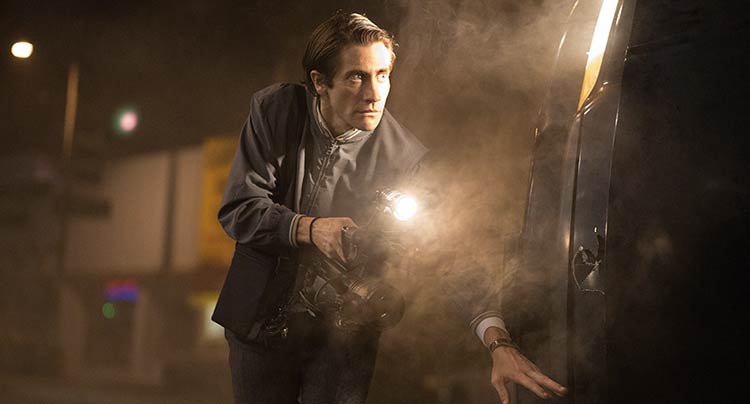
Holding Out for An Anti-Hero
[Ananda]
Charlie’s Country provided the sort of introspection that a well-performed mirror-on-society film can, and it put me in a pensive place. Then Nightcrawler came and jerked me right out of my revery.
Led in full force by a sinewy Jake Gyllenhaal, Dan Gilroy’s directorial debut shocks the system, pulling its viewers down into the underbelly of LA’s late night crime journalism world. Almost more villain than anti-hero, Gyllenhaal plays Lou Bloom, an intrepid but aimless young man whose every bit of diction sounds like the worst of self-help book drivel. What is it about a sociopath that makes them so easy to love? Perhaps because their lack of emotion is so easy to interpret as naiveté?
When Bloom happens across a crime scene one night, he first encounters the audacious and questionable freelance video journalists of Los Angeles. Those who listen to police scanners and roam the streets of LA late at night looking for whatever crime scene will be juiciest to sell to the blood-hungry morning news outlets. Bloom decides to try his hand at it, and as a fast learner he only pushes the boundaries further and further in his relentless pursuit of whatever angle is grisliest. But Bloom’s entrepreneurial spirit knows no bounds, and his ambition drives him beyond the level of the crime he captures on camera.
Gilroy proves a surprisingly astute director, his writing experience translating to engaging characters in all their depraved and unethical glory. Full of noir-ish atmosphere, the film has just enough wickedness to seem fantastical. And thank goodness, or this LA lady might have a hard time ever leaving her house at night again.
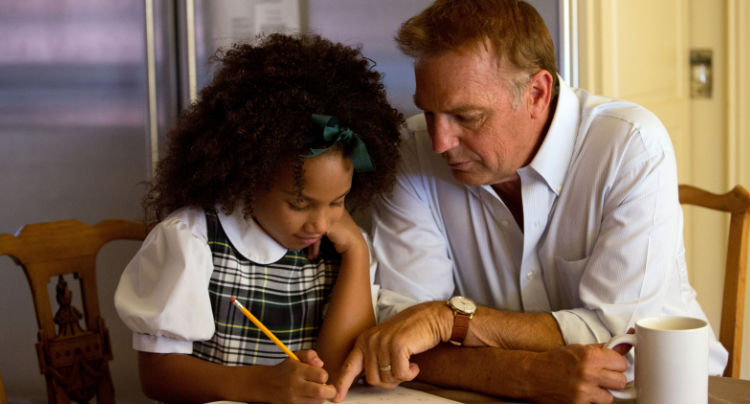
The Race-Relations Do-Si-Do
[Bernard]
While Ananda was a few miles down the road in Corte Madera watching the unsettling Nightcrawler, I was in San Rafael, where I was equally unsettled, but in a different way. A custody drama between a white family and a black family that left me perplexed and mildly offended, Black and White, directed by Mike Binder, fumbles its messaging on black stereotypes and white guilt and sullies things even further with inexplicable outbursts of gag comedy. My face was in perpetual “cringe mode”, as at times I couldn’t believe what I was seeing and hearing.
Kevin Costner (who also starred in the ultimate white-guilt fantasy, Dances With Wolves), stars as drunk, rich widower Elliot, who lives in LA. When we meet him his wife’s just died in a car accident, and his daughter died a few years prior giving birth to his granddaughter, Eloise (Jillian Estelle). Fighting Elliot over custody of Eloise is her grandmother (Octavia Spencer) and her absentee, drug-addicted dad, who use Elliot’s racist-ish tendencies and his alcohol abuse as leverage in the case.
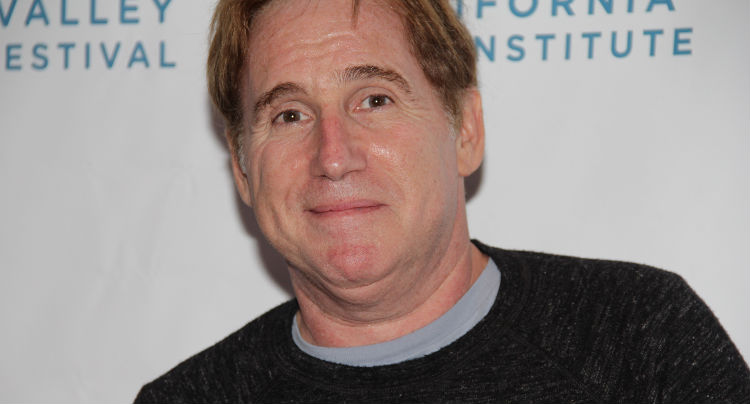
Binder on the red carpet
A few things about this film rub me the wrong way. For one, despite the seriousness of the themes and subject matter, the film will throw a random, silly joke in your face that feels tonally inappropriate, frankly. There’s a running joke in the film involving Eloise’s nerdy math tutor handing people essays he’s written on an impossible number of subjects. When he’s on the witness stand, he pulls out an essay and hands it to the judge, evoking a hearty laugh. Seemingly moments later, we see Elliot half-apologetically explaining why he called Eloise’s father a “street nigger”. This ping-ponging from comedy to racial drama is incredibly uncomfortable, making the film is an awkward example of white ignorance.
